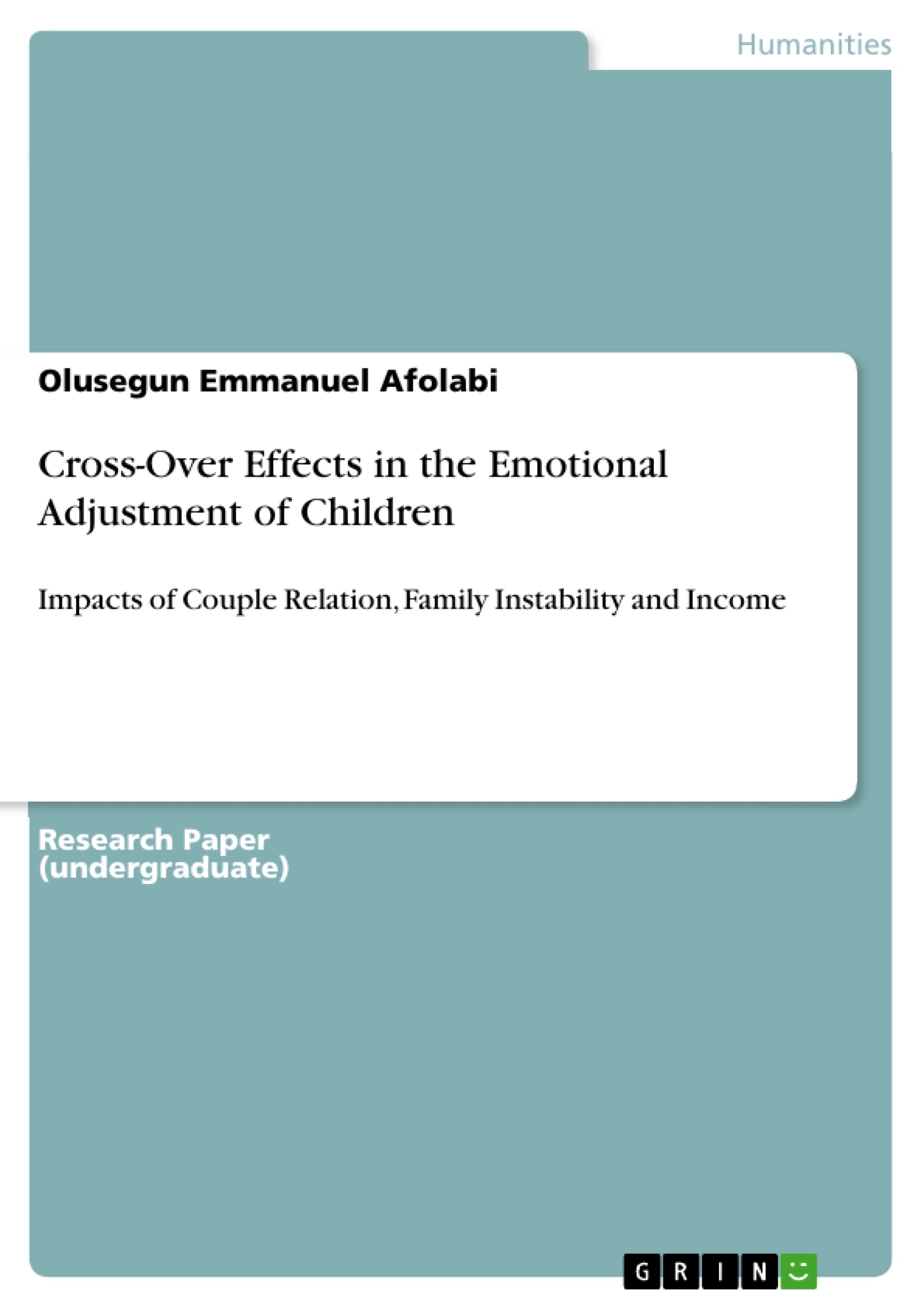Numerous studies have come with an assumption that children raised in a conflict, dysfunctional and diverse family contexts show inconsistent forms of results that transverse various developmental domains. Besides research also documented that different family factors such as parents respond to child’s distress, family emotional environment, family income and inter-maternal effectiveness explained children’s emotion and socialization. The paper critically assessed and analyzed research literature on the relative cross over effects of the interactions, i.e. couple relation, family instability and income on a child’s behavioral functioning. The paper addressed why marital quality is evenly conceived as a relationship contentment and functioning and further look at how couple relation, family instability and income are linked with undesirable child’s behaviour. Finally, findings revealed that children experiences family instability and nurtured in a poor family background are linked to emotional and behavioral problems in teenage years.
Table of Contents
- Introduction
- Purpose of the Paper
- Objectives
- Theoretical Framework
- Chapter Two
- An Ecological Perspective to Couple Relation and Child's Emotional Adjustment
- Conceptual Model
Objectives and Key Themes
This paper aims to examine the relationship between couple relationships, income, and family instability and their influence on a child's emotional adjustment. The study will analyze the crossover effects of these factors on a child's emotional and behavioral functioning, focusing on marital quality, family functioning, and the ecological perspective.
- Impact of couple relationships, income, and family instability on a child's emotional adjustment
- Crossover effects of these factors on a child's emotional and behavioral functioning
- Relationship between marital quality and child functioning
- Analysis of family relationships and child adjustment from an ecological and family stress model perspective
- Exploring the influence of financial stress on marital relationships and child development
Chapter Summaries
The introduction provides a comprehensive overview of the existing literature on the impact of couple relationships, income, and family instability on a child's emotional well-being. The paper highlights the significance of considering various factors such as marital discord, economic hardship, and family structure in understanding children's emotional development.
The purpose of the paper is to investigate the crossover effects of these factors on a child's emotional adjustment. The study aims to analyze the relationship between marital quality, family functioning, and child development using the ecological perspective and family stress model.
Chapter Two focuses on the theoretical framework underpinning the study. It examines the ecological perspective and family stress model, highlighting the importance of considering multiple levels of influence on child development. The chapter also discusses the concept of financial stress and its potential impact on marital relationships and child well-being.
Keywords
The primary keywords and focus topics include: couple relations, family instability, income, child's emotional adjustment, crossover effects, marital quality, ecological perspective, family stress model, financial stress, emotional reactivity, and behavioral functioning.
Frequently Asked Questions
What are "cross-over effects" in child development?
Cross-over effects refer to how interactions within a family, such as marital conflict or financial stress, "cross over" to influence a child's emotional and behavioral adjustment.
How does marital quality impact a child's behavior?
Research shows that poor marital quality and constant conflict are linked to undesirable behaviors in children, including emotional reactivity and socialization problems.
What role does family income play in emotional adjustment?
Children raised in poor family backgrounds often face higher risks of emotional and behavioral problems during their teenage years due to the associated financial stress on the family system.
What is the ecological perspective on family instability?
The ecological perspective examines how various environmental layers—from the immediate home life to broader economic conditions—interact to shape a child's development.
Why is family emotional environment important?
The way parents respond to a child's distress and the overall emotional climate of the home are critical factors in teaching children how to regulate their own emotions.
- Citation du texte
- Olusegun Emmanuel Afolabi (Auteur), 2013, Cross-Over Effects in the Emotional Adjustment of Children, Munich, GRIN Verlag, https://www.grin.com/document/232147



